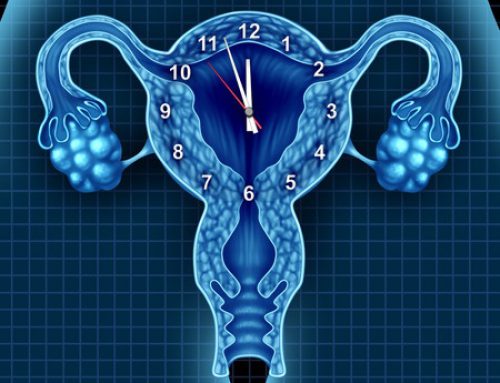 If you are trying to conceive, it is important to acknowledge something that can stand between you and your ability to conceive a healthy child: environmental toxicity. When the idea of health comes to mind, we often think about how much we exercise, what food we eat and whether or not it is nutritious. However, our environment, whether in the work or home, contributes to our health in paramount ways especially when it comes to reproductive health and fertility. The environment’s role in fertility should not be overlooked.
If you are trying to conceive, it is important to acknowledge something that can stand between you and your ability to conceive a healthy child: environmental toxicity. When the idea of health comes to mind, we often think about how much we exercise, what food we eat and whether or not it is nutritious. However, our environment, whether in the work or home, contributes to our health in paramount ways especially when it comes to reproductive health and fertility. The environment’s role in fertility should not be overlooked.
Many of the household cleaning products and personal care products that people use on a daily basis are comprised of chemicals that can lead to hormonal imbalances. By mimicking estrogen in the body, these substances can wreak havoc on the delicate balance that is required for optimal fertility. Endocrine disrupters, also known as environmental estrogens, can be found in plastics (especially those that contain BPA), pesticides, food, air, water, pharmaceuticals, beauty products and household cleaning products.
It’s important to take a moment to differentiate normal, healthy estrogen in the body from environmental estrogens. While there are unhealthy estrogen pathways, the estrogen produced naturally in your body is healthy. It plays an important role in bone building, female sexual development and other things related to female hormonal health (fertility, pregnancy, menstruation, etc.).
Sometimes too much of a good thing can be bad though. Too much estrogen in the body, also known as estrogen dominance, can cause health problems. Estrogen dominance is not having enough progesterone to oppose estrogen. This hormonal imbalance can set the stage for disease, causing immune system abnormalities, cancer and other conditions. Furthermore, progesterone plays an important role in maintaining a pregnancy. It is also necessary in the second part of the menstrual cycle (after ovulation) to help support implantation of a fertilized embryo. A feedback loop exists in early stages of pregnancy in which the body produces more progesterone, which leads to more HCG production, which leads to more progesterone, and more HCG, and so on. So when you become pregnant simply not having enough progesterone to support a pregnancy can lead to problems.
We live in a feminizing environment. This means that on a daily basis we come in contact with things that the body interprets as estrogen. For the most part, this is due to synthetic or environmental estrogens mimicking estrogen in the body. As you can imagine, this is very confusing to our endocrine system, leading to a myriad of metabolic and hormonal problems.
The frustrating aspect of this is that there are many aspects to living in a feminizing world that we cannot control. The air quality in western Pennsylvania is very poor. Our ground water is under experimentation now with hydraulic fracking. Our food is being changed through various processes without long-term research outcomes. However, we can take preventive measures to remove unnecessary toxins from our daily lives, while supporting the body’s natural detoxification processes to acheive greater health. In this way we can lower the overall burden from the environment to our bodies.
Here are a few ways to avoid environmental toxins that can compromise your fertility:
- Eat organic. Pesticides and herbicides are full of dangerous chemicals, which is why it is important to eat organic food as often as possible. You’ll also benefit from increased nutrients and minerals, which both contribute to a healthy body!
- Avoid pharmaceuticals. Sometimes prescription drugs are necessary, but often they are over-prescribed and can lead to estrogen dominance. There are many herbal and nutritional remedies available for common ailments. Work with a naturopathic doctor to determine the best treatment approach for your condition.
- Filter your water. Tap water is full of harmful endocrine-disrupting chemicals.
- Steer clear of plastics. Foods that are stored, packaged or heated in plastics can transfer chemicals to your food and drink.
- Use healthy cleaning supplies. I recommend making your own with white distilled vinegar, baking soda, essential oils and Dr. Bronner’s soap.
- Eat flax seed. Just 2 Tbsp. of freshly ground flaxseed per day lowers inflammation and helps you maintain your hormonal balance.
Strive to improve your digestion. Healthy digestion is important for estrogen balance because constipation leads to estrogen dominance as well. Estrogens tend to be reabsorbed in the large intestine if one is not eliminating properly. It’s important to poop every day! The emunctories, or organs of elimination, must be working well so that waste leaves the body effectively. Surprisingly, the skin is an emunctory too. The skin releases waste through sweat. The kidneys are also an emunctory. Drinking filtered water aids in eliminating waste through urine from the kidneys. Through the lungs, we breathe clean air and we exhale in order to complete respiratory detoxification. It ia also important to improve liver function because the liver conjugates and processes estrogens and other toxins in order to eliminate them.
Just taking steps as described above go a long way in balancing the estrogens that we are exposed to through the environment. These steps will not only enhance fertility, but will also set the stage for a healthy pregnancy, healthy baby and optimal, abudant living for your body and mind.







